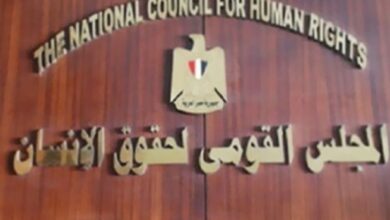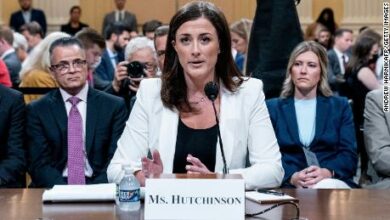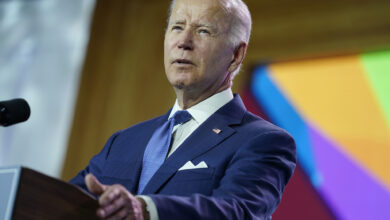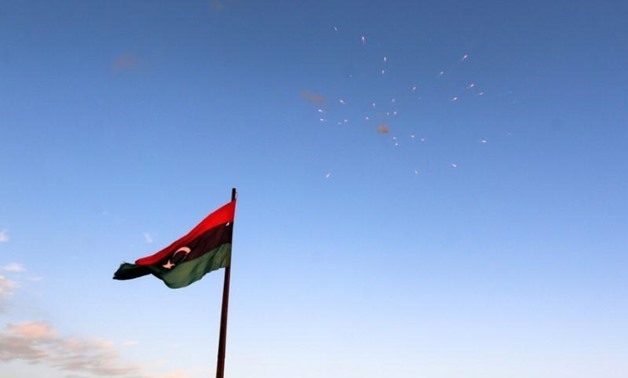Members of various social and political organizations have pooled their minds and resources in an attempt to create a unified vision for immutable supra-constitutional precepts that could contribute to defining the main elements of an upcoming constitutional draft.
Known as the National Council (NC), this group of independent activists, experts and academics is composing a list of common principles to present to the ruling Supreme Council of the Armed Forces (SCAF), which has agreed to issue a supra-constitutional declaration before the country’s new constitution is written.
The proposed unified document will reconcile agreed-upon concepts between at least seven different individual documents, separately issued by dialogue and civil action groups, human rights organizations and Al-Azhar University. Even some potential presidential candidates, such has Hisham Bastawisi and Mohamed ElBaradei, have proposed their own visions.
The document includes clauses that affirm the call for a civil state, while maintaining that Islam will remain the country’s main religion.
“Any modern democratic state is civil, no matter what the government’s other characteristics are,” says constitutional judge Tahani al-Gebali.
Gebali, who is in charge of unifying the document, has intentionally allowed some of the clauses to remain vague, leaving the document void of some of the specificities contained in other proposals. This has meant unifying semantics and extracting common denominators for issues such as national identity and religious freedom. One such example of a unifying concept has been the popular proposal that the constitution should only consider the Abrahamic religions for religious representation.
“Some of the proposals included elements of an economic program or civil law, which we had to leave out, because those can always be amended,” says Gebali.
Despite the fact that many of the individual proposals are specific in addressing the role of the armed forces, the unified proposal does not. Bastawisi’s proposal, for example, includes clauses that call for the complete independence of the armed forces. The National Council for Women, of which Gebali is a member, has called for the military conscription of females.
Lawmakers involved have attempted to brush with as broad a stroke as possible, yet some have called for more specific clauses.
“This document should include a clause confirming that the role of religious organizations in conducting personal affairs must not be in contravention to human rights laws,” says Bahey al-Din Hassan, head of the Cairo Institute for Human Rights Studies.
“[The final proposal] needs to be more specific with regard to the role of oversight and accountability over public goods,” says Ibrahim Yousry, a member of the Central Auditing Organization, and founder of Auditors Against Corruption.
Many also criticized the document for being too inconclusive regarding major economic and social issues.
“All the proposals, including the unified one, are extremely non-committal with regards to social justice, which was one of the main demands of the 25 January revolution,” says Mohamed Shawky of the 25 January Revolution Youth Coalition.
Others complained that the document did not specifically address role of the government vis-à-vis the economy, although it did stress the importance of maintaining public ownership of strategic resources and the Nile River.
Presidential hopeful and former Secretary General of the Arab League Amr Moussa, for his part, has expressed support for the conference, though he doubts its legal legitimacy. “It’s good that they’re gathering and trying to look for common ground,” he says. “However, there is no such thing as a supra-constitutional document. The constitution to me is the highest document in governance and cannot be usurped.”
Moussa added that while these clauses could be included in the new constitution, the responsibility would fall to the future constitutional foundation committee to include the council’s recommendations.
The drafting committee of this document, however, says that these clauses would not be included as part and parcel of the constitution, but pre-imposed on the committee – either by the SCAF, should they accept, or a popular referendum.
“We would like to propose elements of the constitution that would only be considered supra-constitutional in that they would be open to amendment, just like any other constitutional clause,” says Gebali.
Participants in the conference have agreed on a draft committee to create the final proposal that would be presented to the SCAF for consideration. However, the absence of some prominent social and political organizations, most obviously the Muslim Brotherhood – who, according to National Council organizer Mamdouh Hamza, declined an invitation to participate – means that the unified document cannot claim to represent a majority of Egypt’s population.
Participants have presented different visions on how to implement the proposal.
“If we cannot have the Constitution first, then we must at least insist on having a referendum on supra-constitutional concepts,” says Mohamed al-Saeed of the Al-Ahram Center for Political and Strategic Studies.
Gebali has also presented her own personal guidelines for the selection of the constitutional foundation committee that will be chosen by the newly elected parliament. Participants have supported her proposal, which calls for including a broad range of representation from different social, governmental, scientific and other professional vocations, all of whom would subsequently not be able to run for public office for the following five years.
Activist lawyer Essam Islam Bouli has proposed and gotten approved a list of names of those who will comprise the committee to form a final draft of the proposal, and has said that the NC will announce the date of its unveiling within a week.




